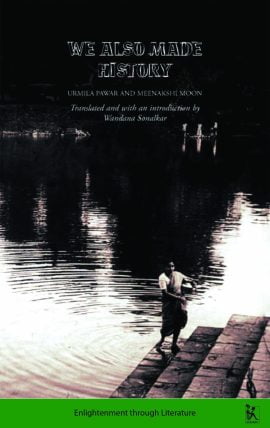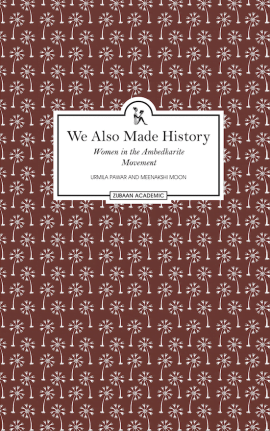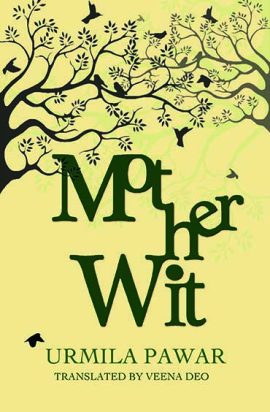No products in the cart.
Return To Shop
Log in / Sign in
Login
Register
Filter by price
We Also Made History: Women in the Ambedkarite Movement
Rated 5.00 out of 5
₹ 420 – ₹ 695Select format
This product has multiple variants. The options may be chosen on the product page This year, Zubaan commemorates 21 years as a feminist organisation. Over these years, we’ve delivered bundles of treasures across continents. However, in the past years, specifically the lockdown, many of our treasured books took a backseat in the warehouse and their bright, crisp pages turned yellow. But the content of every book is still intact, carrying opinions, voices, equal opportunities, ample love, and the courage to build a diverse and empathetic community.
Titled Warehouse Wonders, these books remain cherished and valuable for reading despite their age and wear.
Come, join us in our journey of preserving books which have been handcrafted brilliantly but haven’t reached our voracious readers.
Find the details about each book here:
https://zubaanbooks.com/shop/the-sharp-knife-of-memory/
https://zubaanbooks.com/shop/motherwit/
https://zubaanbooks.com/shop/my-homage-to-all/
We hope you enjoy this bundle of joy!
Please note: We are shipping these orders by post. Please allow 10-14 business days for delivery. These copies cannot be returned.
This essay is a historical overview of Dalit literature, focusing on the contribution of women writers. The authors Urmila Pawar and Meenakshi Moon show how the Dalit movement gained momentum with the rise of Dalit centric newspapers and literary societies, which gave a voice to the Dalit people. Led by Babasaheb Ambedkar, this literary movement was strengthened through talks, discussions, analysis of folk songs, and by spreading literacy and encouraging research. By the 1960s, Dalit writers had created a huge collection of short stories, poems, novels, autobiographies and analytical pieces. The authors focus on the gradual increase of female voices and perspectives in Dalit writing – on topics ranging from religious customs like funerary rites, birth control, to mixed marriages. Some women included larger criticisms of patriarchal societal norms in their writing, advocating for equality. They were especially emphatic about the need for education, urging other Dalit women to take initiative by educating their daughters. The essay also looks at writings on Ambedkar himself, and on Buddhism, the religion that Ambedkar heavily propounded, and later embraced. By providing excerpts of their writings, the essay shows how the women often had differing points of view, leading to healthy discussions and critiques. Appreciating these works for their literary merits as well as social significance, the authors suggest that they helped people understand and appreciate their own history, and facilitated the spread of radical ideas of identity and self-worth.
This essay is a historical overview of Dalit literature, focusing on the contribution of women writers. The authors Urmila Pawar and Meenakshi Moon show how the Dalit movement gained momentum with the rise of Dalit centric newspapers and literary societies, which gave a voice to the Dalit people. Led by Babasaheb Ambedkar, this literary movement was strengthened through talks, discussions, analysis of folk songs, and by spreading literacy and encouraging research. By the 1960s, Dalit writers had created a huge collection of short stories, poems, novels, autobiographies and analytical pieces. The authors focus on the gradual increase of female voices and perspectives in Dalit writing – on topics ranging from religious customs like funerary rites, birth control, to mixed marriages. Some women included larger criticisms of patriarchal societal norms in their writing, advocating for equality. They were especially emphatic about the need for education, urging other Dalit women to take initiative by educating their daughters. The essay also looks at writings on Ambedkar himself, and on Buddhism, the religion that Ambedkar heavily propounded, and later embraced. By providing excerpts of their writings, the essay shows how the women often had differing points of view, leading to healthy discussions and critiques. Appreciating these works for their literary merits as well as social significance, the authors suggest that they helped people understand and appreciate their own history, and facilitated the spread of radical ideas of identity and self-worth.
Originally published in Marathi in 1989, this contemporary classic details the history of women’s participation in the Dalit movement led by Dr B.R. Ambedkar, for the first time. Focusing on the involvement of women in various Dalit struggles since the early twentieth century, the book goes on to consider the social conditions of Dalit women’s lives, daily religious practices and marital rules, the practice of ritual prostitution, and women’s issues. Drawing on diverse sources including periodicals, records of meetings, and personal correspondence, the latter half of the book is composed of interviews with Dalit women activists from the 1930s. These first-hand accounts from more than forty Dalit women make the book an invaluable resource for students of caste, gender, and politics in India. A rich store of material for historians of the Dalit movement and gender studies in India, We Also Made History remains a fundamental text of the modern women’s movement.
A Dalit, a Buddhist and a feminist: Urmila Pawar’s self-definition as all three identities informs her stories about women who are brave in the face of caste oppression, strong in the face of family pressures, defiant when at the receiving end of insult, and determined when guarding their interests and those of their sisters. Using the classic short story form with its surprise endings to great effect, Pawar brings to life strong and clever women who drive the reader to laughter, anger, tears or despair. Her harsh, sometimes vulgar and hard- hitting language subverts another stereotype – that of the soft-spoken woman writer. Pawar’s protagonists may not always be Dalit, and the mood not always one of anger, but caste is never far from the context and informs the subtext of each story.
As critic Eleanor Zelliot notes, there is ‘tucked in every story, a note about a Buddhist vihara or Dr Ambedkar…. All her stories come from the Dalit world, revealing the great variety of Dalit life now.’
“The book gives a wide range of material on one of the important struggles of feminism in India.” — Gail Omvedt, The Hindu
Categories
Filter by
Product tags
academic
AFSPA
Bangladesh
caste
conflict
Dalit women
e-essays
feminism
feminist
feminist fiction
Fiction
gender
gender studies
health
history
impunity
India
Kashmir
Law
legislation
Literary Fiction
Memoir
Nagaland
New Editions
Non-Fiction
Northeast India
Pakistan
Poetry
sexual violence
Short Stories
sociology
South Asia
SVI
SVI Project
Top Ten
translation
violence
violence against women
warehouse wonders
women's activism
women writer
women writers
young zubaan
zubaanbooks
Zubaan Classics
Contact Us
© Zubaan 2019. Site Design by Avinash Kuduvalli.
Payments on this site are handled by CCAvenue.










